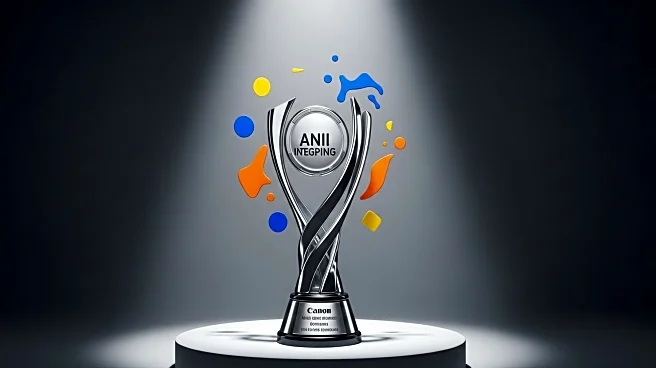What's Happening?
Jimmy Gressier, a French athlete, won the men's 10,000 meters at the world championships, marking France's first gold medal in the event. Instead of the usual acknowledgments to family or coaches, Gressier expressed gratitude to the Athletics Integrity Unit (AIU) for their efforts in combating doping in track and field. The AIU, established in 2017, has been instrumental in enforcing doping regulations, particularly in high-risk countries like Kenya and Ethiopia. AIU Director General David Howman reported that 1,209 tests were conducted on 145 athletes from these regions before the championships. Gressier's victory over Ethiopia's Yomif Kejelcha highlights the impact of these anti-doping measures, although there is no evidence of Kejelcha's involvement in doping.
Why It's Important?
The acknowledgment by Gressier underscores the significant role of the AIU in ensuring fair competition in athletics. By intensifying doping tests, especially in countries with a history of non-compliance, the AIU helps maintain the integrity of the sport. This development is crucial for athletes who compete cleanly, as it levels the playing field and enhances the credibility of international competitions. The AIU's efforts also reassure sponsors, fans, and stakeholders about the fairness of the sport, potentially increasing viewership and investment in athletics.
What's Next?
The AIU is likely to continue its rigorous testing and compliance efforts, particularly in high-risk regions. This could lead to more stringent regulations and increased testing frequency. Athletes and federations may need to adapt to these changes, ensuring adherence to anti-doping rules. The success of these measures could prompt other sports organizations to adopt similar strategies, further promoting clean sports globally.
Beyond the Headlines
The AIU's work raises ethical questions about the balance between athlete privacy and the need for rigorous anti-doping measures. As testing becomes more comprehensive, the organization must navigate these concerns while maintaining transparency and fairness. Additionally, the success of these efforts could influence cultural perceptions of doping, encouraging a shift towards cleaner sports practices worldwide.









